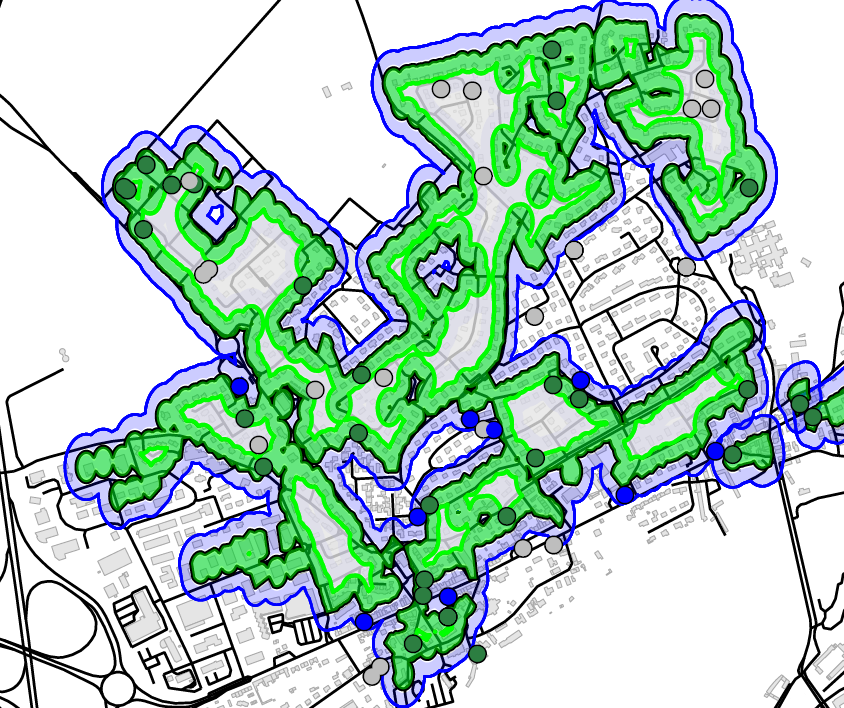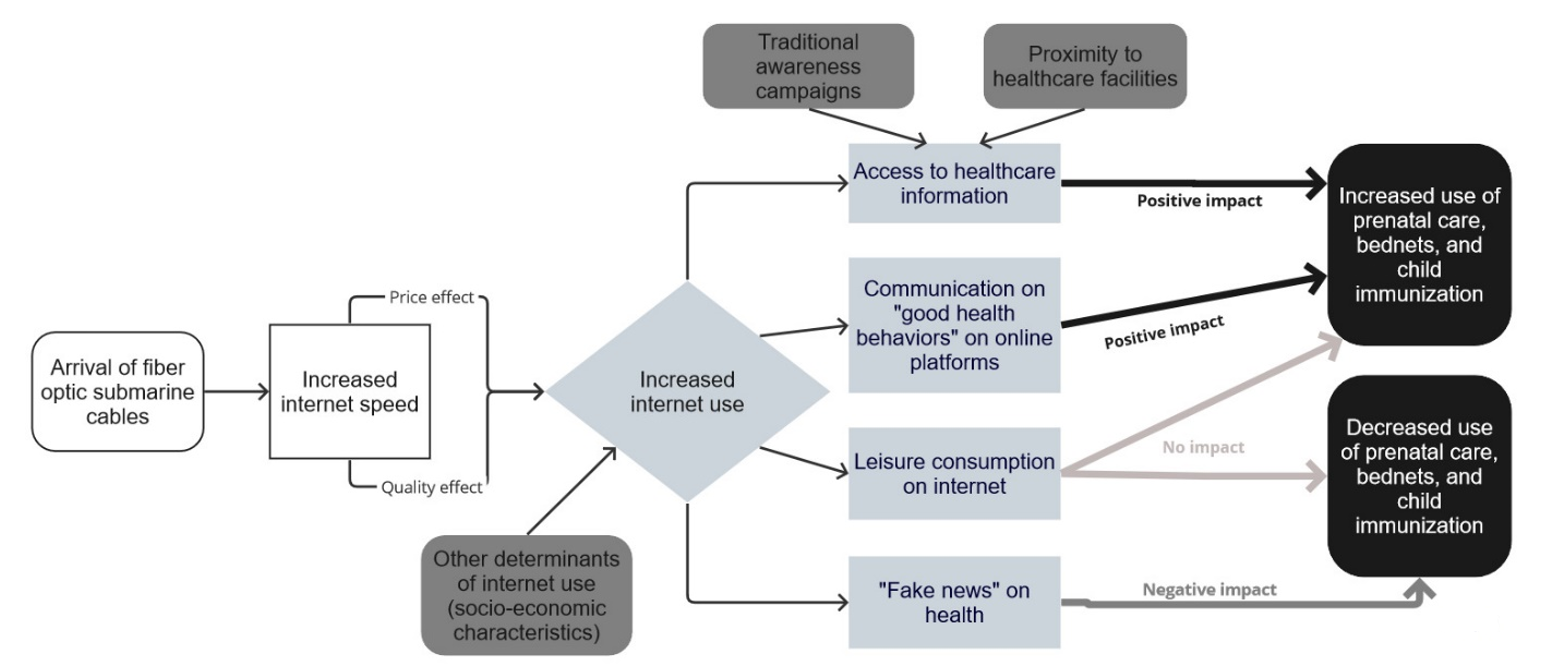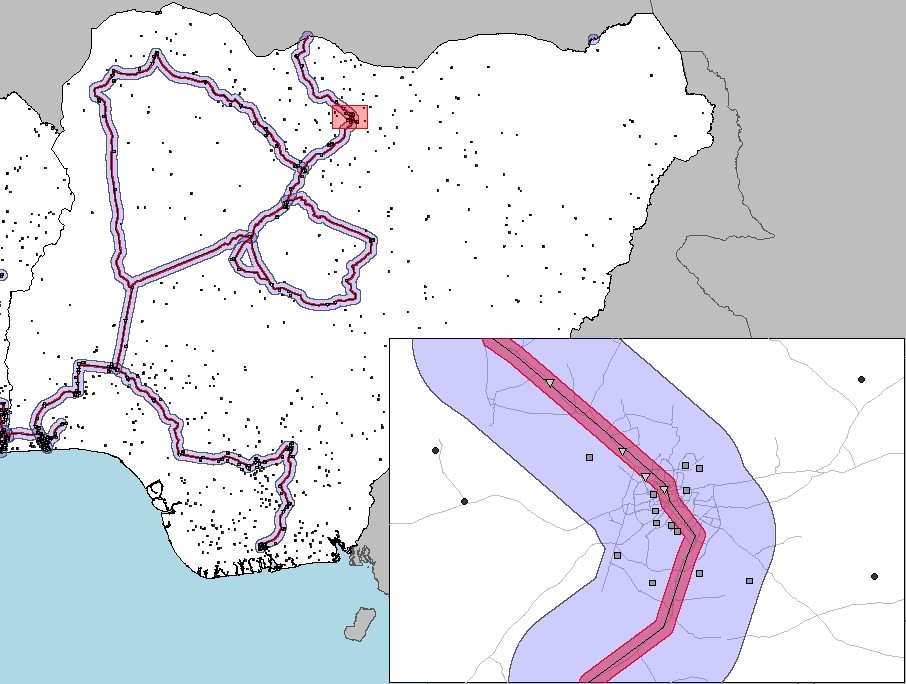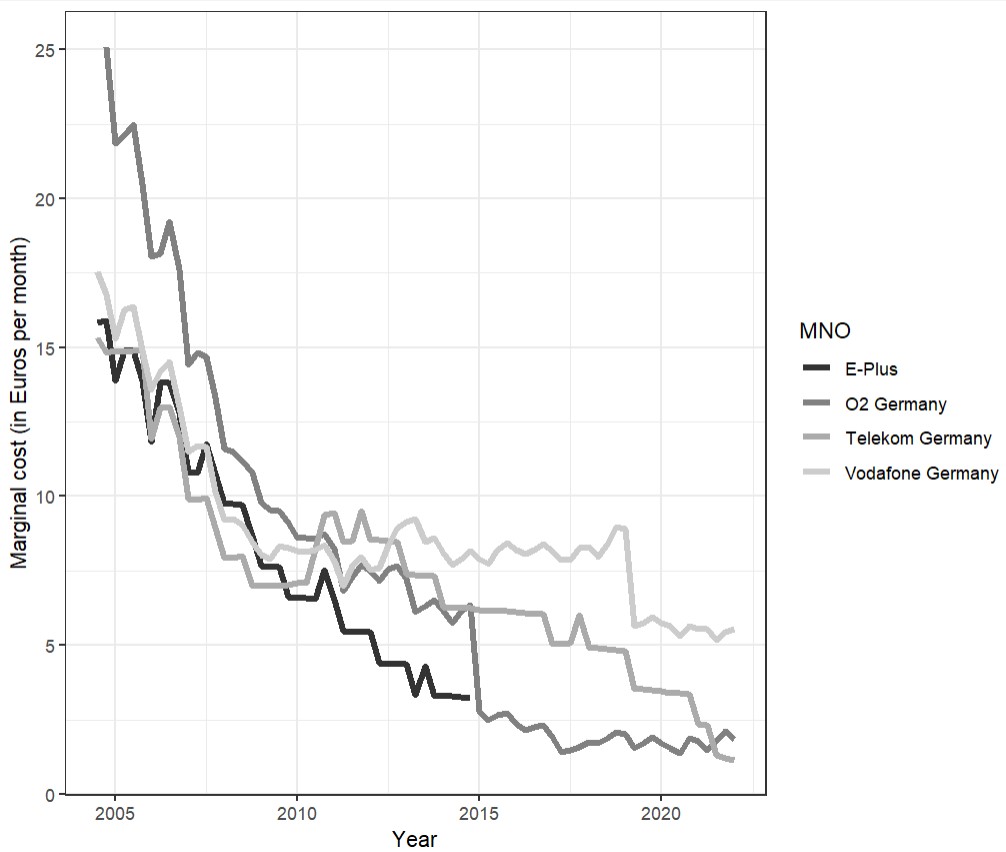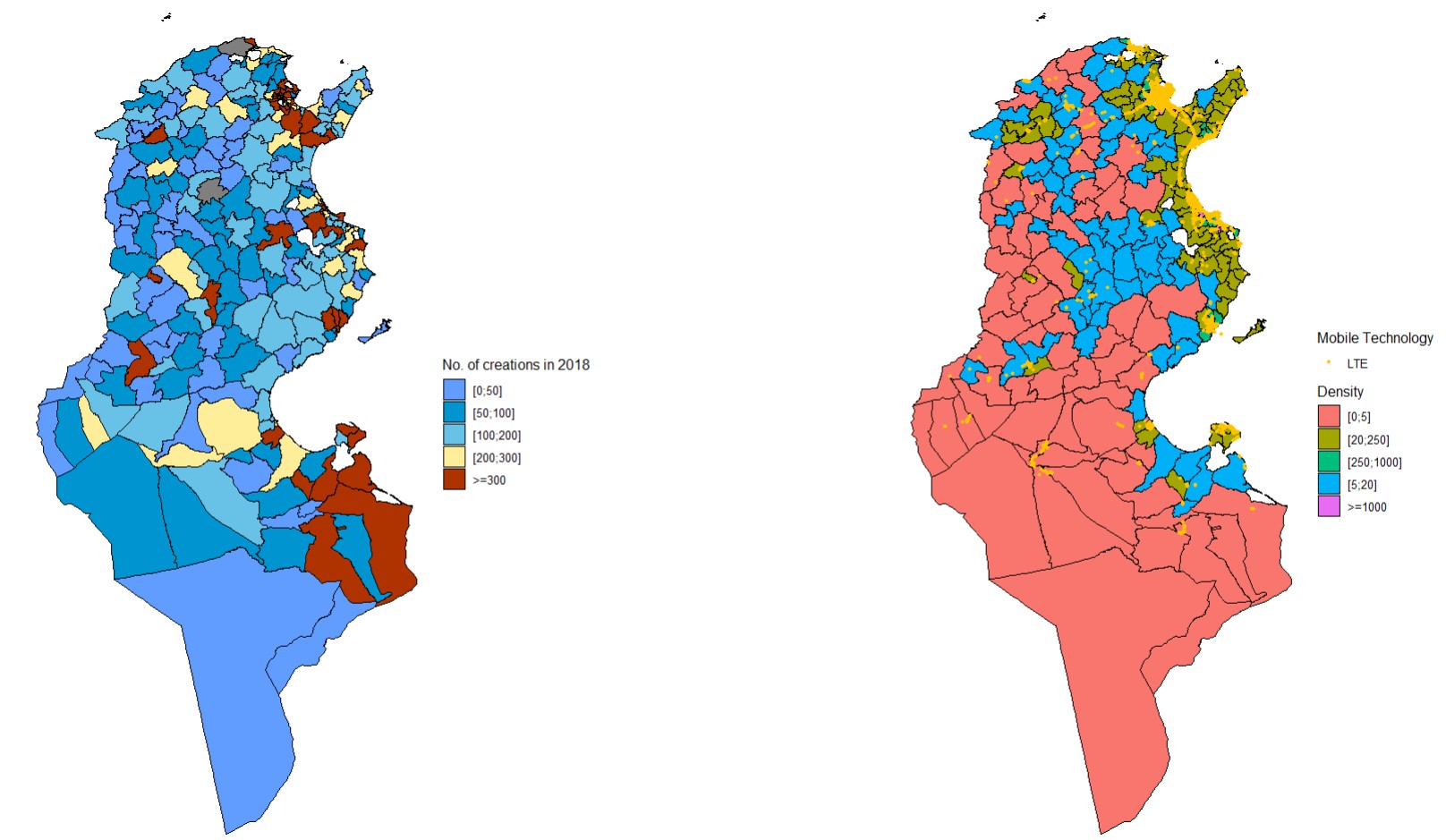From Connection to
Coordination: High-Speed Internet and Protests in Africa
What is the role of broadband Internet in shaping political
participation in Africa? This study leverages the staggered arrival of
submarine Internet cables and the terrestrial backbone network in Africa
to examine the influence of high-speed Internet on protests. Combining
large-scale cross-country surveys on political behaviors and
disaggregated data on conflict events, robust difference-in-differences
estimates indicate a significant increase in both the likelihood of
protest participation and the frequency of protests. This effect is
particularly observed in countries that actively exercise political
rights and civil liberties. The analysis explores two key
mechanisms—information dissemination and coordination facilitation—with
the latter identified as the predominant factor influencing the observed
effects.
Welfare
Cost of Mobile Spectrum (Mis)allocation — with Marc Ivaldi,
Julienne Liang, and Louise Aïmène
The conditions of spectrum allocation or reallocation are significant in
determining the market structure in the telecom sector which in turn
affects the prices and the quality of mobile networks. In a more
concentrated market, the quantity of spectrum is less diluted, and
operators can offer higher quality to their customers; In a more
competitive market, where there are more operators, consumers can
benefit from a lower price but at the expense of less spectrum for each
operator. To address this trade-off, we first fit a demand model of
mobile telecommunications services on a unique panel database for 23
MNOs of five major European countries from 2004Q3 to 2021Q4. Notably, we
provide an adequate proxy of the mobile network quality for consumers by
combining coverage data with spectrum data. Using this estimated demand
model, we conduct a counterfactual simulation to measure the effect on
consumer surplus of the incomplete spectrum allocation and the arrival
of an additional operator in Germany. Results show that reallocating
additional spectrum to three instead of four operators is consumer
welfare improving as prices do not increase much while quality is
significantly improved.
From
Bytes to Business: Mobile Broadband, Firm Creations and Digital Divide
in Tunisia — with Mohamed Ali Marouani
This paper investigates the impact of mobile broadband Internet on
business creation in Tunisia. Using a rich dataset of Tunisian
delegations, the study employs a count model and fixed effects panel
data estimation to assess the influence of mobile broadband Internet
quality and delegation characteristics on firm creation. The empirical
findings demonstrate a robust positive relationship between the density
of 4G antennas per 10,000 inhabitants and the number of new business
creations (and a positive impact on net business creations). Notably,
this relationship is stronger and exhibits later effects in rural areas,
particularly on the peripheries of major urban centers, suggesting
varying rates of technology adoption and challenging the hypothesis of
the ``death of distance” that broadband Internet was expected to bring.
This research highlights the potential role of mobile broadband in
stimulating local economic growth and sheds nuanced light on the
economic implications of the digital divide.
